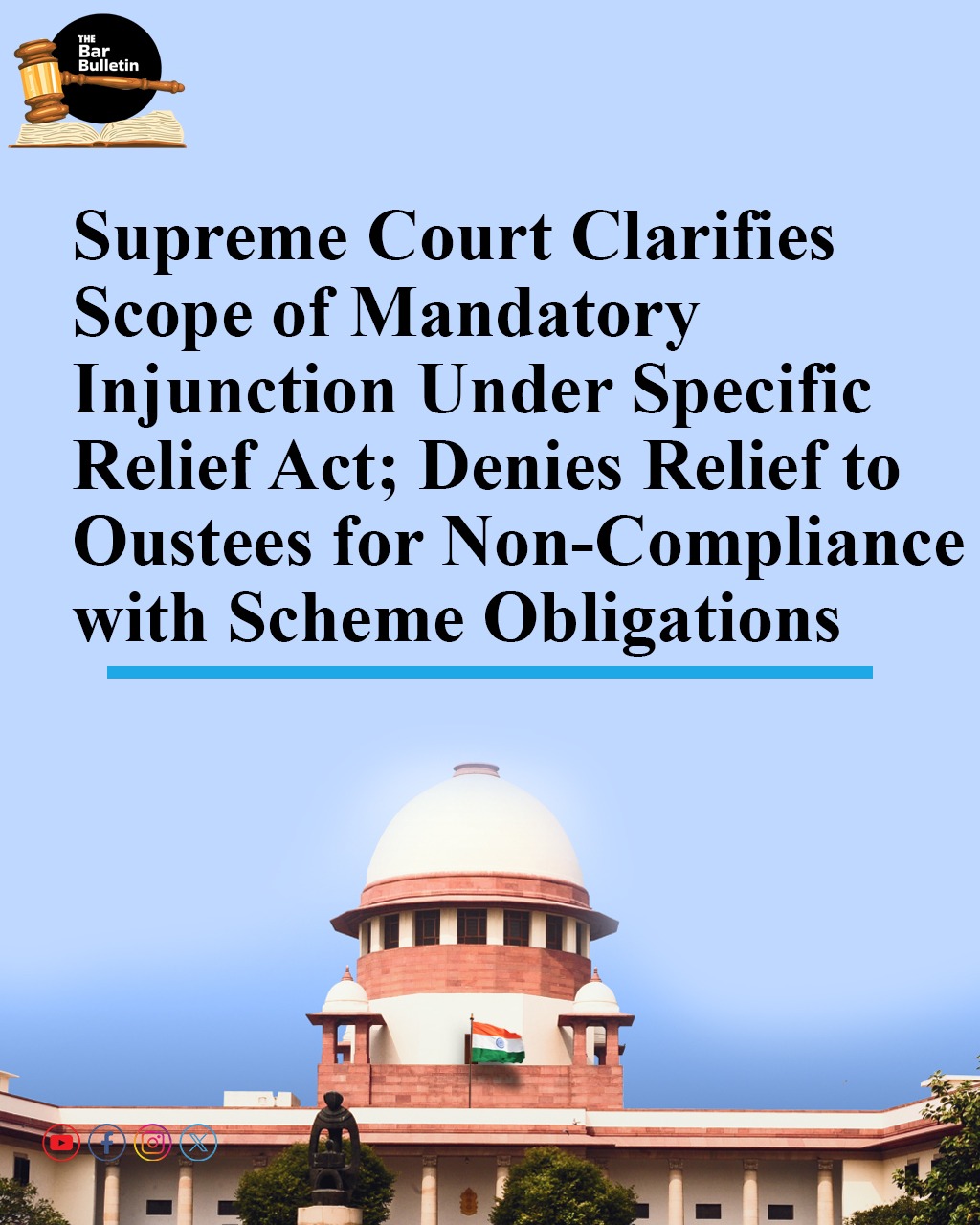The Supreme Court allowed the appeals filed by Haryana Urban Development Authority (HUDA), setting aside the decision dated 12.08.2016 by the High Court of Punjab and Haryana, upholding the trial court decrees favouring the claimants-respondents, the oustees.
In the instant case, multiple suits were filed by landowners whose properties had been compulsorily acquired in 1992 by HUDA for development projects. The oustees sought mandatory injunctions directing HUDA to allot them residential plots under the 1992 Policy. The High Court granted relief without examining compliance with scheme conditions. HUDA challenged these decisions.
The bench of Justices J B Pardiwala and R Mahadevan, while adjudicating whether the respondents were entitled to claim plots as oustees at the rate prescribed by the 1992 policy or at the rate prescribed by the revised policy of 2016, elaborated on the principles regarding the application of Section 39 of the Specific Relief Act.
The Court observed that the oustees failed to file valid applications under the 1992 scheme, including non-payment of the required 10% earnest money. Reiterating that equity aids the vigilant, it noted that the appellant’s case was marked with gross delay of 14-20 years and absence of pleadings establishing breach of enforceable legal duty. The Court clarified that such claims were barred by limitation under Limitation Act, where the maximum permissible limitation is three years. The Court decisively held that the case did not involve a recurring cause of action.
Importantly, the Court drew on precedents like Amarjit Singh v. State of Punjab[1] to clarify that rehabilitation is not a constitutionally protected right but a matter of government policy, rooted in humanitarian considerations rather than legal entitlement. It emphasized that the primary entitlement of landowners is monetary compensation upon acquisition, and any additional schemes must be narrowly tailored for those whose livelihood is intrinsically connected to the land.
The Supreme Court allowed the appeal and set aside the High Court’s orders, directing plot allotment and held the suits were not maintainable under Section 39 of the Specific Relief Act by virtue of being barred by limitation. However, exercising its equitable discretion, the Court permitted eligible oustees to apply afresh under the 2016 Oustee Policy, with proper compliance.
[1] (2010) 10 SCC 43
![]()

